A soprano ([soˈpraːno]) is a type of classical female singing voice and has the highest vocal range of all voice types. The soprano's vocal range (using scientific pitch notation) is from approximately middle C (C4) = 261 Hz to "high A" (A5) = 880 Hz in choral music, or to "soprano C" (C6, two octaves above middle C) = 1046 Hz or higher in operatic music. In four-part chorale style harmony, the soprano takes the highest part, which often encompasses the melody. The soprano voice type is generally divided into the coloratura, soubrette, lyric, spinto, and dramatic soprano.

The Wild, the Innocent & the E Street Shuffle is the second studio album by American rock singer-songwriter Bruce Springsteen. It was recorded by Springsteen with the E Street Band at 914 Sound Studios, Blauvelt, New York, and released on November 5, 1973 by Columbia Records. It includes the song "Rosalita ", the band's most-used set-closing song through 1985.

The Mamas and the Papas were an American folk rock vocal group which recorded and performed from 1965 to 1968. The group was a defining force in the music scene of the counterculture of the 1960s. The group was composed of John Phillips, Denny Doherty, Cass Elliot, and Michelle Phillips. Their sound was based on vocal harmonies arranged by John Phillips, the songwriter, musician, and leader of the group who adapted folk to the new beat style of the early 1960s.
A spoken language is a language produced by articulate sounds, as opposed to a written language. Many languages are only in written form and are not spoken. An oral language or vocal language is a language produced with the vocal tract, as opposed to a sign language, which is produced with the hands and face. The term "spoken language" is sometimes used to mean only vocal languages, especially by linguists, making all three terms synonyms by excluding sign languages. Others refer to sign language as "spoken", especially in contrast to written transcriptions of signs.
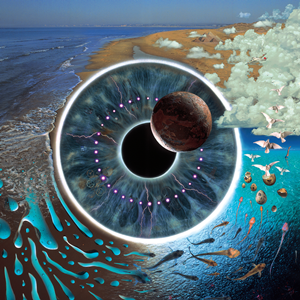
Pulse is a live album by the English rock band Pink Floyd. It was released on 29 May 1995 by EMI in the United Kingdom and on 6 June 1995 by Columbia in the United States. The album was recorded during the European leg of Pink Floyd's Division Bell Tour in 1994.

Hed PE is an American rock band from Huntington Beach, California. Formed in 1994, the band is known for its eclectic genre-crossing style, predominately in the fusion of gangsta rap and punk rock it has termed "G-punk", but also for its reggae-fused music.

Monster is the ninth studio album by American rock band R.E.M., released on September 27, 1994 by Warner Bros. Records. Produced by the band and Scott Litt and recorded at four studios, the album was an intentional stylistic shift from R.E.M.'s previous two albums Out of Time (1991) and Automatic for the People (1992), with loud, distorted guitar tones and simple arrangements. Michael Stipe's lyrics at times deal with the nature of celebrity, and some are sung from the viewpoint of a character.
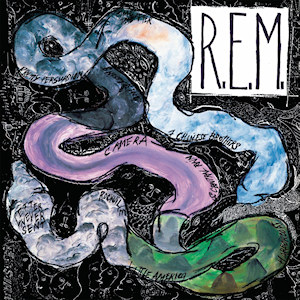
Reckoning is the second studio album by American alternative rock band R.E.M., released on April 9, 1984 by I.R.S. Records. Produced by Mitch Easter and Don Dixon, the album was recorded at Reflection Sound Studio in Charlotte, North Carolina, over 16 days in December 1983 and January 1984. Dixon and Easter intended to capture the sound of R.E.M.'s live performances, and used binaural recording on several tracks. Lead singer Michael Stipe dealt with darker subject matter in his lyrics, with water-related imagery being a recurring theme on the album.

James Travis Tritt is an American country music singer, songwriter, and actor. He signed to Warner Bros. Records in 1989, releasing seven studio albums and a greatest hits package for the label between then and 1999. In the 2000s, he released three studio albums on Columbia Records and one for the now-defunct Category 5 Records. Seven of his albums are certified platinum or higher by the Recording Industry Association of America (RIAA); the highest-certified is 1991's It's All About to Change, which is certified triple-platinum. Tritt has also charted more than 40 times on the Hot Country Songs charts, including five number ones—"Help Me Hold On", "Anymore", "Can I Trust You with My Heart", "Foolish Pride", and "Best of Intentions"—and 15 additional top ten singles. Tritt's musical style is defined by mainstream country and Southern rock influences.

"Come Together" is a song by the English rock band the Beatles, written by John Lennon and credited to Lennon–McCartney. The song is the opening track on their 1969 album Abbey Road and was also released as a single coupled with "Something". The song reached the top of the charts in the United States and peaked at No. 4 in the United Kingdom.
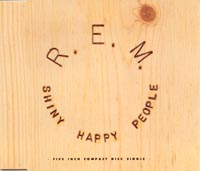
"Shiny Happy People" is a song by the band R.E.M. It appeared on their 1991 album Out of Time, and was released as a single in the same year. The song features guest vocals by Kate Pierson of the B-52's, who also appears in the music video.

"Yes It Is" is a song by the English rock band the Beatles. Written by John Lennon it was first released in 1965 as the B-side to "Ticket to Ride". It features some of the Beatles' most complex and dissonant three-part vocal harmonies and showcases George Harrison's early use of volume pedal guitar. Ian MacDonald describes the song as having "rich and unusual harmonic motion."

"Hey You" is a song by English rock band Pink Floyd, released on their 1979 double album The Wall. The song, along with "The Show Must Go On", was edited out of the film for fear on the part of the filmmakers that the film was running too long; however, a rough version is available as an extra on the 25th Anniversary Edition DVD.

A hoarse voice, also known as dysphonia or hoarseness, is when the voice involuntarily sounds breathy, raspy, or strained, or is softer in volume or lower in pitch. A hoarse voice, can be associated with a feeling of unease or scratchiness in the throat. Hoarseness is often a symptom of problems in the vocal folds of the larynx. It may be caused by laryngitis, which in turn may be caused by an upper respiratory infection, a cold, or allergies. Cheering at sporting events, speaking loudly in noisy situations, talking for too long without resting one's voice, singing loudly, or speaking with a voice that's too high or too low can also cause temporary hoarseness. A number of other causes for losing one's voice exist, and treatment is generally by resting the voice and treating the underlying cause. If the cause is misuse or overuse of the voice, drinking plenty of water may alleviate the problems.
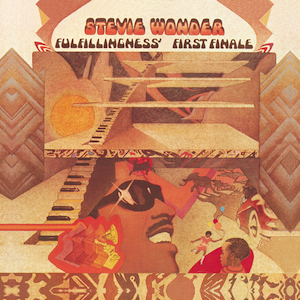
Fulfillingness' First Finale is a 1974 album by Stevie Wonder; widely considered one of the albums from his "classic period". Released on July 22, 1974, on the Tamla label, it is Wonder's nineteenth album overall, and seventeenth studio album.
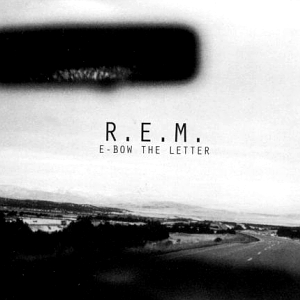
"E-Bow the Letter" is the first single from R.E.M.'s tenth studio album New Adventures in Hi-Fi. It was released in August 1996 just weeks before the album's release. During the same month, R.E.M. signed its then record-breaking five-album contract with Warner Bros. Records. Although it peaked at number four on the UK Singles Chart, the highest any R.E.M. song charted in the United Kingdom until "The Great Beyond" in 2000, the song fared less well in the United States, reaching only number 49 on the Billboard Hot 100. It became R.E.M.'s lowest charting lead single since "Fall on Me" released from Lifes Rich Pageant in 1986, when the band was on a smaller record label, I.R.S. Records.
A voice type is a group of voices with similar vocal ranges, capable of singing in a similar tessitura, and with similar vocal transition points (passaggi). Voice classification is most strongly associated with European classical music, though it, and the terms it utilizes, are used in other styles of music as well.

Locus Solus is an album of improvisations by John Zorn and other musicians. Originally released as a double vinyl album on Rift records in 1983 it was re-released as a CD with additional tracks on Eva/Wave in 1990 and on Zorn's Tzadik Records label in 1997.

R.E.M. was an American rock band from Athens, Georgia, formed in 1980 by drummer Bill Berry, guitarist Peter Buck, bassist Mike Mills, and lead vocalist Michael Stipe who were students at the University of Georgia. Liner notes from some of the band's albums list attorney Bertis Downs and manager Jefferson Holt as non-musical members. One of the first alternative rock bands, R.E.M. was noted for Buck's ringing, arpeggiated guitar style; Stipe's distinctive vocal quality, unique stage presence, and obscure lyrics; Mills's melodic bass lines and backing vocals; and Berry's tight, economical drumming style. In the early 1990s, other alternative rock acts such as Nirvana and Pavement viewed R.E.M. as a pioneer of the genre. After Berry left the band in 1997, the band continued its career in the 2000s with mixed critical and commercial success. The band broke up amicably in 2011 with members devoting time to solo projects after having sold more than 90 million albums worldwide and becoming one of the world's best-selling music artists.
"Funtime" is a song written by David Bowie and Iggy Pop, first released by Iggy Pop on his 1977 album entitled The Idiot. It reflects Iggy and Bowie's growing fascination with the German music scene, and bears marked similarities to "Lila Engel" by Neu!. It has since been covered by multiple artists including Blondie, Boy George, Bebe Buell, R.E.M. and The Cars.
















